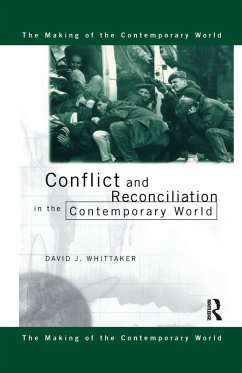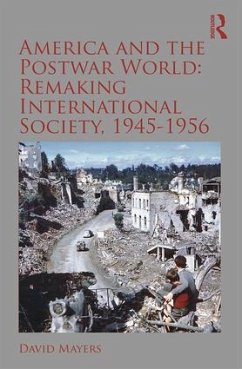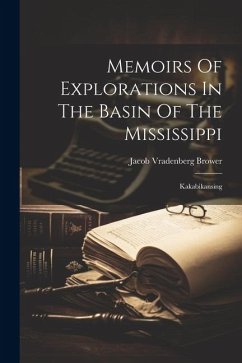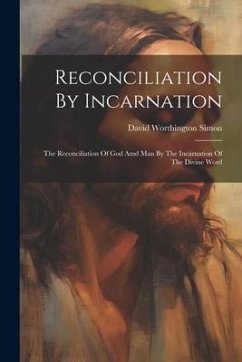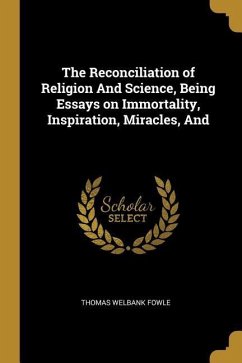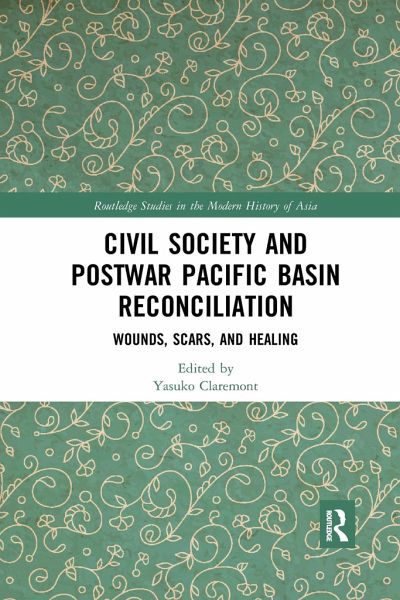
Civil Society and Postwar Pacific Basin Reconciliation
Wounds, Scars, and Healing
Herausgeber: Claremont, Yasuko
Versandkostenfrei!
Versandfertig in 1-2 Wochen
55,99 €
inkl. MwSt.

PAYBACK Punkte
28 °P sammeln!
The book brings together discussions of leading aspects of the Asia-Pacific War which still have huge relevance today. The topics addressed range from the development of war guilt and responsibility in postwar Japan to the vivid impact of art on bringing alive the reality and cruelty of the war.







